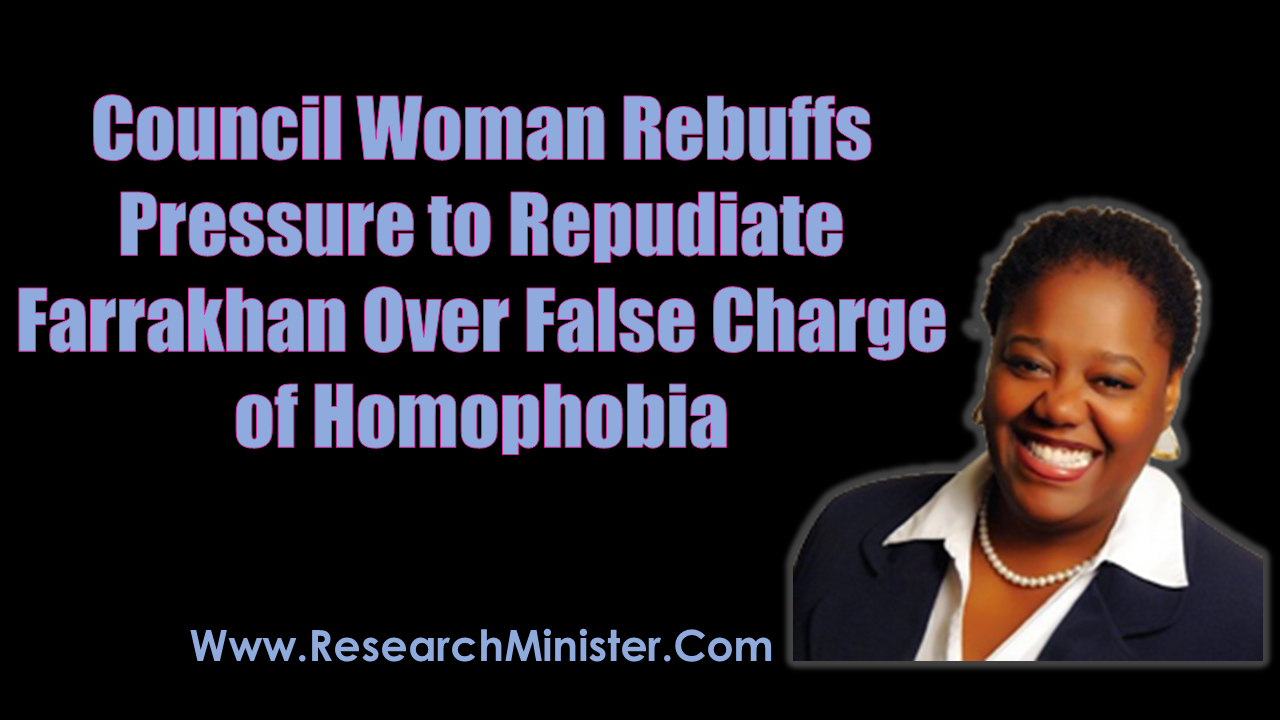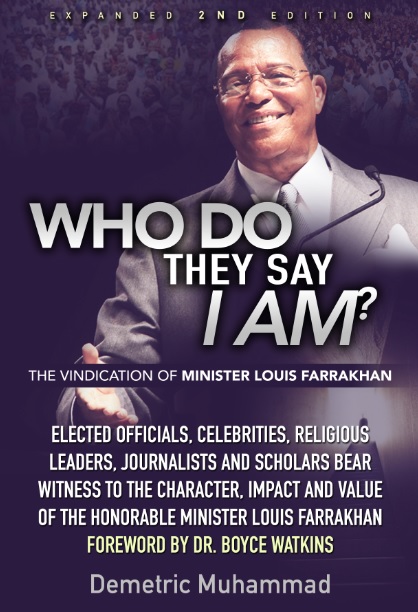Council Woman Rebuffs Pressure to Repudiate Minister Farrakhan Over False Charge of Homophobia
The following is an excerpt of an interview with LaWanna Mayfield conducted by Matt Comer. Ms. Mayfield is a Charlotte, NC city councilperson who appeared at a leadership meeting held by the Honorable Minister Louis Farrakhan during the Holy Day of Atonement observance in October 2012. Ms. Mayfield was pressured by media outlets within the city of Charlotte to renounce the Minister. She refused and stood resolutely by her decision to attend the meeting.
What do you say to people who want you to publicly denounce Farrakhan?
[The] same thing I said at the beginning. It’s God’s place to judge people. The great thing about the United States is everyone has an opinion, and I represent an extremely diverse community. It is not my place to place judgment on anyone. I’m not God, and I don’t intend to be.
Would you consider denouncing Farrakhan based on his anti-LGBT and anti-Semitic remarks?
It is your responsibility as an individual, as an adult and as a young adult to not listen to everything one person says. We need to be individual thinkers, so I’m going to look at the good people have done and I’m going to look at where we can build something together as opposed to focusing on our differences. At the end of the day, there are things I do not agree with, but I also recognize, as an African-American female, a lot has been done for the African-American community by the Muslim community under the leadership of Minister Farrakhan.
Is there a tipping point where Farrakhan’s beliefs are harmful versus helpful?
I am African American first before I am anything else. Every room I walk into, before you identify my sexuality, before you know I’m an elected official, before you know where I went to school, what you see is an African-American female.
The day I was born, my ethnicity was stated on my birth certificate. The day I die, that’s what’s going to be on my birth certificate. It is not going to say whether or not I was heterosexual, lesbian, bi or transsexual. I’m going to continue to be as respectful to as many people as I possibly can be, but I’m not going to shy away from who I am as an African-American female.
I am not going to discount the work Minister Farrakhan has done any more than I would discount the work I have done in the Latino, Asian Pacific and other diverse communities. I’m not going to let anyone bully me into taking a stance I don’t personally believe in.
How would you explain your position to an LGBT person in your community?
Very few people have asked me. When MeckPAC was called to denounce me, they did not. When [the national Gay & Lesbian] Victory Fund was called to denounce me, they did not. I am doing exactly what I said I would do and represent everyone, not get side-tracked because one or two people feel like I should take a stance without having had any real conversation about the totality of an individual.
The Southern Poverty Law Center calls the Nation a hate group.
Are we saying Muslims are hateful? How many Muslims follow the leadership of Minister Farrakhan? I’m not concerned with anything other than what I was there in attendance for; to participate in an African-American leadership discussion.
Do you think Southern Poverty Law Center’s hate-group designation is inaccurate?
For me, the hate group designation has as much merit as those of us in the community who think all Muslims are terrorists. It’s that type of intolerance that encourages “us versus them,” as opposed to encouraging communities to work together. (Comer 2012)

